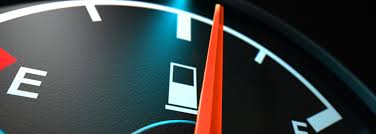reo" alt="" width="300" height="107" srcset="reo 300w, nps 376w" sizes="(max-width: 300px) 100vw, 300px"/>
Bryan Cutsinger has been doing a wonderful job of presenting financial issues to unravel.
Typically, to do fundamental economics, it’s good to know fundamental math.
Right here’s an announcement from analysis scientist Carey King in “Why Vitality Effectivity May Not Minimize Emissions As A lot as You Assume,” Wall Road Journal, November 11, 2024 (print version):
The concept extra effectivity can spur extra consumption relatively than much less is named the Jevons Paradox. Named after the British economist William Stanley Jevons, who first described it in his 1865 e-book “The Coal Query,” the paradox challenges the intuitive perception that effectivity positive factors robotically result in power financial savings.
Critics who dismiss Jevons’s thought usually give attention to shopper conduct. For instance, it’s onerous to think about {that a} driver would drive 50% extra miles if buying a automotive that makes use of 50% much less gasoline per mile. They could drive just a little extra, but it surely wouldn’t be sufficient to make a distinction.
Implicit in King’s assertion, given the context, is the concept that if mileage had been to rise by 50%, gasoline consumption wouldn’t change. Is that true?
Present your work.
Notice: King, the Journal tells us, is a analysis scientist and assistant director on the Vitality Institute on the College of Texas at Austin.
